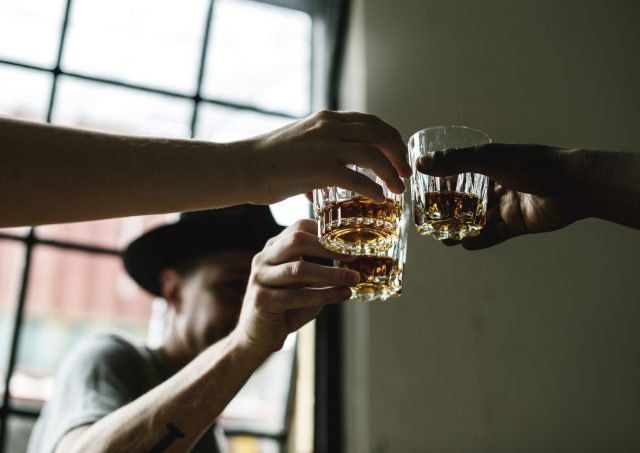One alcoholic drink can shift your morality
A new study has claimed that a single alcoholic drink can change your morality and make you potentially partake in immoral behaviour.

The report, published in the journal Psychopharmacology, aimed to understand if alcohol intoxication affected “the willingness to violate moral foundations”, such as care, fairness, authority, loyalty and purity.
It revealed intoxicated participants after a single drink “sacralized moral foundations of care and purity” more often than participants from the control and placebo groups. This meant participants said they were more willing to physically harm other people and animals and “behave impurely”. But no differences relating to fairness, authority or loyalty were discovered.
The study by researchers at the University of Silesia hoped to discover the decision processes behind immoral behaviours, including crimes, and the effect of alcohol.
For centuries the impact of alcohol on decision making and lowering inhibitions has been known, creating popular phrases such as ‘Dutch courage’, but its impact on morality has remained something of a mystery.
Speaking to PsyPost, one of the study’s authors, Mariola Paruzel-Czachura, said there was little research to understand how drunk people think and right and wrong, and what their intentions are.
Partner Content
She said: “Probably we all saw that drunk people might behave immorally or inappropriately, but no one before us studied this tendency in the laboratory.”
The study used the Moral Foundations Sacredness Scale (MFSS), which is a measure “explicitly focused” on the sacralisation of moral foundations. Participants had a drink within a 10-minute window and watched two emotionally-neutral movie clips while the alcohol was absorbed into their bodies. Their blood alcohol levels were then measured to confirm intoxication before discovery of the differences in morality were questioned by the various groups.
It discovered intoxicated participants had a greater willingness to consider engaging in impure behaviour, such as attending an event where participants act like animals, “crawling around naked and urinating on stage.”
Paruzel-Czachura said: “Drunk people want to do more immoral things than sober people. But we only observed it for two types of behaviors: related to harming others and related to so-called purity violations.”
The study’s authors concluded that perceptions of good and evil help people successfully function in the social world, but sometimes they may guide them to do something immoral. They said: “We showed that even one strong alcoholic drink changes the willingness to do harmful and impure behaviors, like kicking the dog in the head.”
Interestingly though, alcohol did not change “the willingness to stand against authorities or be disloyal or unfair”. But it also concluded “because moral judgment precedes immoral behaviours, our results may help explain why some people under the influence of alcohol break the rules by doing things they would never do when sober.”
Related news
The most interesting conversations db had in 2025
Karuizawa Distillers aspires to be major Japanese whisky player




